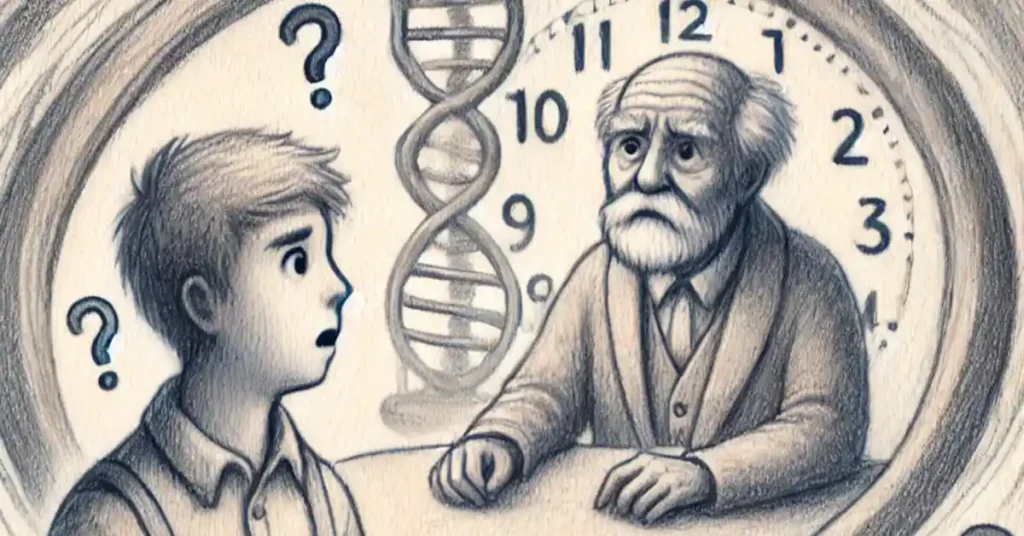Paradoxes are statements or situations that defy our usual sense of logic, presenting contradictions that are both puzzling and thought-provoking. Here are ten famous and intriguing paradox examples, each with a brief historical background and detailed explanations to challenge your understanding of reality.
1. The Grandfather Paradox
Origin: Popularized in the 1940s by science fiction author René Barjavel.
This paradox involves time travel. Suppose you travel back in time and prevent your grandparents from meeting. This would prevent your birth, meaning you could never have traveled back in time to cause the event in the first place. It explores the logical inconsistencies of altering the past. Click here for more about the Grandfather Paradox.
2. The Liar Paradox
Origin: Attributed to the ancient Greek philosopher Epimenides in the 6th century BCE.
The statement “This statement is false” creates an infinite loop of contradiction. If the statement is true, then it must be false. If it’s false, it must be true. This paradox has significant implications for logic and linguistic theory.
3. Zeno’s Paradoxes
Origin: Proposed by the ancient Greek philosopher Zeno of Elea in the 5th century BCE.
Zeno formulated several paradoxes, the most famous being Achilles and the tortoise. He argued Achilles could never overtake a slower tortoise because each time Achilles reached the tortoise’s prior position, the tortoise had moved slightly forward. Zeno used this to challenge the concept of motion and infinity.

4. The Ship of Theseus
Origin: First introduced by the ancient Greek historian Plutarch in his writings around the 1st century CE.
The paradox questions whether a ship that has had all its components replaced remains fundamentally the same ship. It explores identity, continuity, and change, posing significant philosophical questions about what defines an object’s essence.
5. Schrödinger’s Cat
Origin: Devised by physicist Erwin Schrödinger in 1935.
Schrödinger described a thought experiment involving a cat placed inside a box with radioactive material that has a 50% chance of decaying, potentially killing the cat. According to quantum mechanics, the cat would be simultaneously alive and dead until observed, highlighting questions about quantum superposition and reality.

6. The Bootstrap Paradox
Origin: Popularized by Robert A. Heinlein’s science fiction story “By His Bootstraps” (1941).
This paradox involves a causal loop where an object or information is sent back in time without a clear origin, raising questions about cause and effect. For example, if you traveled back in time with a book and gave it to the original author, who truly wrote it?
7. The Omnipotence Paradox
Origin: Has been debated by theologians and philosophers since medieval times, notably discussed by Thomas Aquinas in the 13th century.
This paradox challenges the concept of omnipotence by asking: “Can an omnipotent being create a rock so heavy that even they cannot lift it?” Either answer suggests limits to their power, leading to contradictions about the nature of absolute power.
8. The Unexpected Hanging Paradox
Origin: Introduced by philosopher Carl Gustav Hempel in 1943, though similar ideas appeared earlier.
A judge tells a prisoner he will be executed at noon on a weekday in the following week, and the execution will be unexpected. The prisoner reasons that it cannot happen unexpectedly, yet he is surprised when the execution takes place. This paradox deals with logical prediction and the nature of surprise.

9. The Fermi Paradox
Origin: Named after physicist Enrico Fermi, who posed the question in 1950 during a casual conversation.
This paradox explores the contradiction between the high probability of extraterrestrial life in the universe and humanity’s lack of contact or evidence of such life. It questions assumptions about life’s existence and our understanding of the universe.
10. Russell’s Paradox
Origin: Discovered by philosopher Bertrand Russell in 1901.
Russell’s paradox involves set theory, questioning if there could be a set of all sets that do not contain themselves. If such a set exists, it contradicts itself. This paradox significantly influenced mathematics and logic, leading to major developments in formal logic.
These paradoxes continue to captivate our imaginations and challenge our understanding of logic, mathematics, philosophy, and reality. Which of these paradox examples do you find the most mind-bending? Consider exploring them further and testing your logical reasoning skills!
